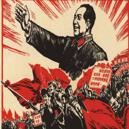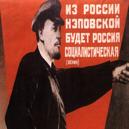Рассмотрено диалектическое мышление В. И. Ленина как теоретика и практика, который в первые годы Советской власти не пытался воплотить в жизнь социализм как абстрактную теорию, а, наоборот, корректировал социалистическую теорию под влиянием практики. Показано, как в ходе социалистического строительства конкретизировалось понятие государства, уточнялось представление о госкапитализме и формах кооперации. Особое внимание уделено конкретизации понимания социализма как антикапитализма, которое предполагает преодоление распределения по труду, и культурно-историческим особенностям реализации этого принципа.
Lenin’s theory of socialist revolution
The article addresses the dialectical thought of Lenin the theorist and Lenin the practician, that did not try to implement socialism as an abstract theory during the first years of soviet government, and contrary to that corrected the socialist theory with regards to influence from practice. The author shows on the basis of Lenin’s works of that period how in the course of socialism construction the idea of government was being made more concrete, how the idea of state capitalism and cooperation forms were being made more specific. A particular attention is dedicated to the way Lenin makes the idea of socialism more concrete as anti-capitalism, which among other things implies overcoming the distribution in accordance to labor, which in the first half of the XXth century Russia had its concretehistorical
specificity.
 Ранний опыт государственного строительства большевиков и Конституция РСФСР 1918 года
Ранний опыт государственного строительства большевиков и Конституция РСФСР 1918 года
 7
7
 25536
|
Официальные извинения
25536
|
Официальные извинения
 972
972
 106435
|
Становление корпоративизма в современной России. Угрозы и возможности
106435
|
Становление корпоративизма в современной России. Угрозы и возможности
 239
239
 85329
85329






